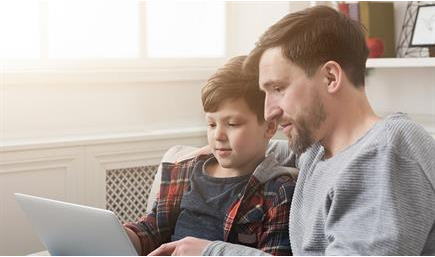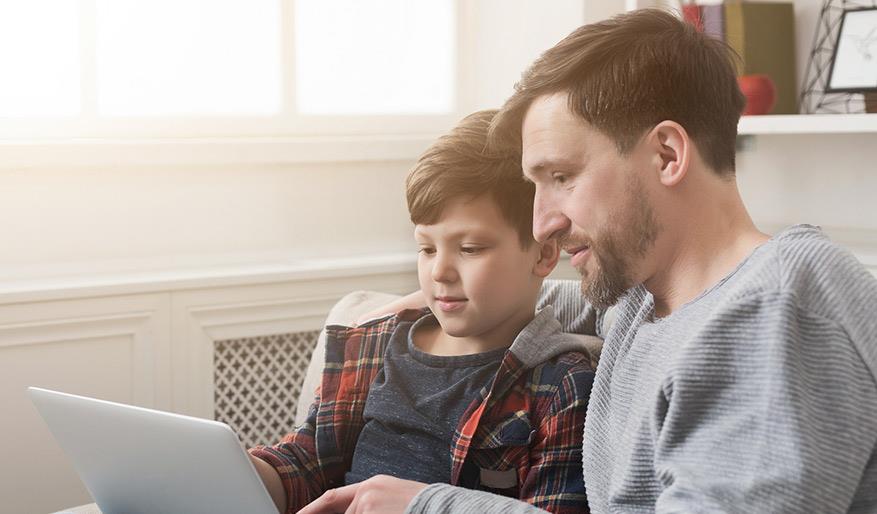Right now, COVID-19 is disrupting the lives of everyone in some way or another, including our kids. Changes to normal routines and overhearing conversations about a global pandemic are bound to cause confusion in children. And when children don’t understand something, they worry about it.
These are uncertain times for all of us and we as adults may struggle to understand what is going on and start to feel anxious. But we need to remember that children are very intuitive and will sense your anxiety.
The closure of schools will have had a big impact on daily routines. Kids are suddenly at home all day, but they aren’t allowed to have playdates with their friends, and they may not be entirely sure why. You may be having hushed conversations around them which they will notice but not understand. They probably have many questions, some of which you won’t be able to answer, but its important that you try to address any concerns they do have.
The best thing to do is down with your kids and chat about it. Try to have calm, open and honest conversations with them. It doesn’t need to be too in-depth or technical but give them the opportunity to ask questions that might help them to better understand and cope with the situation. Here are some tips to help you handle these conversations:
- Keep calm Remember that children will react to not only what you say, but how you say it. Before you talk to them, take some time to try and manage your own worries and anxieties. Children feed off your reactions, so if you are calm and reassuring when you speak with them about things, they will be too.
- Stay positive It is natural to focus on the immediate negative impacts that the situation has had on our lives. But these negative feelings will only lead to more worry. Try to focus on a positive outcome and discuss this as a family. You may suddenly have a lot more time together, so use this time to play a game or learn a new skill together.
- Ask open ended questions Start by asking them how they feel about the virus. This may encourage them to start talking about things they have heard or seen, but not discussed with you. It will also give you the opportunity to talk though anything they have heard from friends or online that might not be true.
- Explain things in simple terms Medical terms can involve lots of complicated words that sometimes we don’t understand. Take the time to read up on some basic facts about coronavirus and COVID-19, so that you can explain it to your children in a way that is easily understood. Use language that is truthful and age appropriate for the child. If they are really young, and the concept of a ‘virus’ is too much to understand, talk about ‘bugs’ or ‘germs’. When they can understand something, it becomes less of a worry.
- Be mindful of the media We may have been watching more news than usual or been having conversations that children have overheard. Try and pay attention to what they are watching or listening to and consider reducing the amount of COVID-19-focused screen time. Headlines and online content can be overdramatised or even untrue. Too much focus on one topic can make them feel anxious about it.
- Teach them good hygiene Talk to your children about the importance of good hygiene. Go through the steps of thorough hand washing with them and make it fun. Tell them that this is the first and most important step in preventing the virus from spreading and let them know that they can make a difference.
Remember, children are intuitive and will pick on any worries that you have. Honest, calm and reassuring conversations with them will help ease any fears and make them feel secure. If you have young children, in years to come they probably won’t remember too much about the COVID-19 pandemic, but they will remember how you reacted to it.

